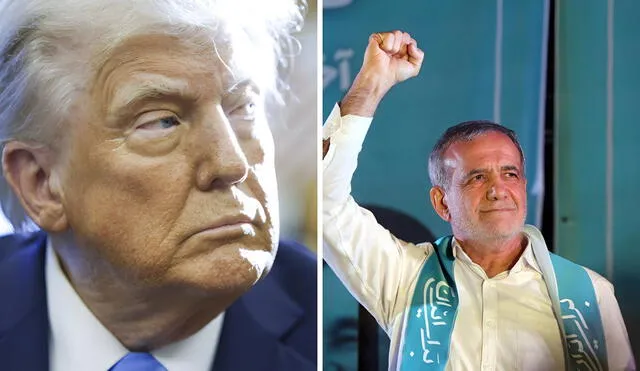Trump warns Iran: End nuclear program or face unprecedented military action
With tensions rising between the U.S. and Iran, diplomatic efforts hang in the balance as Tehran defends its nuclear ambitions, global markets react, and world leaders scramble to prevent a potential crisis. Will diplomacy prevail, or is a new conflict on the horizon?

U.S. President Donald Trump has issued a stern warning to Iran, stating that unless Tehran ends its nuclear weapons program and engages in new negotiations, it will face unprecedented military action. He emphasized that his administration will not allow Iran to develop nuclear capabilities that threaten global security. In response to Trump's letter proposing direct talks, Iranian President Masoud Pezeshkian rejected the offer but indicated openness to indirect negotiations through intermediaries like Oman. Iranian officials insist that any discussions must include lifting economic sanctions imposed by the U.S.

ALSO SEE: California player wins $527 million powerball Jackpot: Winning ticket sold at Anaheim 7-eleven
Global powers call for diplomacy amid rising U.S.-Iran nuclear tensions
Amid escalating tensions, the U.S. has deployed B-2 stealth bombers to Diego Garcia, signaling a readiness for potential military action should diplomatic efforts fail. Military analysts suggest that this move is meant to pressure Iran into compliance while keeping military options on the table. Iran has showcased a new underground "missile city," housing numerous ballistic missiles, highlighting its preparedness and escalating the regional arms race. Iranian military leaders claim these facilities enhance their deterrence capabilities against potential U.S. or Israeli attacks.
The international community remains concerned about the potential for conflict, emphasizing the need for diplomatic solutions to address Iran's nuclear ambitions and regional security issues. European leaders have urged both nations to return to negotiations and avoid actions that could trigger a broader conflict. Russia and China have also called for de-escalation, warning that military confrontation would have severe consequences for global stability. Meanwhile, Israel has expressed support for the U.S. stance, reinforcing its commitment to preventing Iran from acquiring nuclear weapons.
Iran defends nuclear program as global tensions spark market volatility
Iranian officials continue to assert that their nuclear program is for peaceful purposes and that the country has no intention of developing nuclear weapons. They argue that U.S. sanctions are unjust and violate international agreements, calling for their immediate removal. The Iranian government has also threatened to further reduce cooperation with the International Atomic Energy Agency (IAEA) if pressure from the West continues. Despite these tensions, analysts believe that backchannel diplomacy may still provide a path to de-escalation.
As the situation unfolds, global markets have reacted to the uncertainty, with oil prices experiencing volatility amid fears of potential supply disruptions. The U.S. and its allies remain divided on the best approach, with some advocating for increased pressure and others calling for renewed diplomatic engagement. While military conflict remains a possibility, the coming weeks will be crucial in determining whether diplomacy can prevent escalation or if the region is headed for a new crisis.











